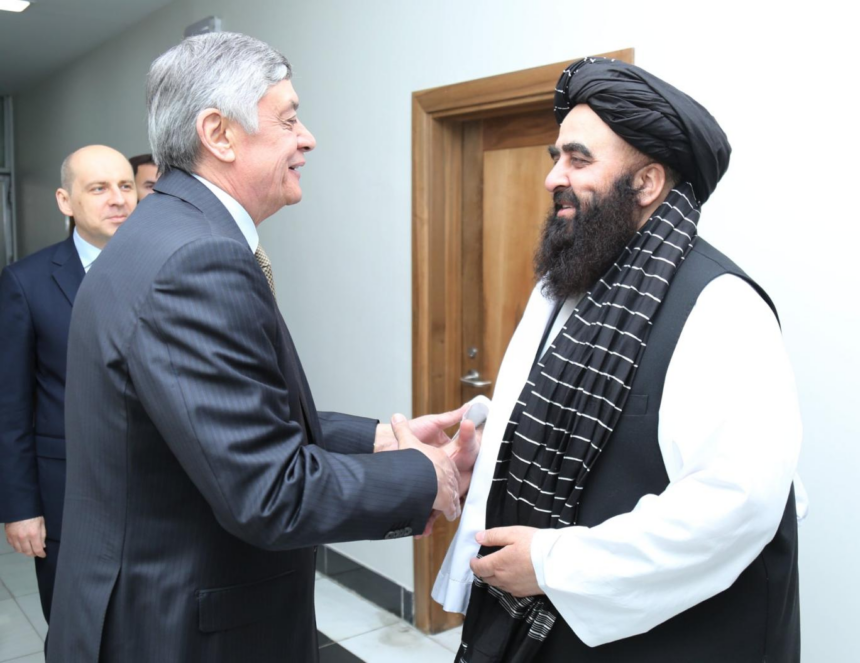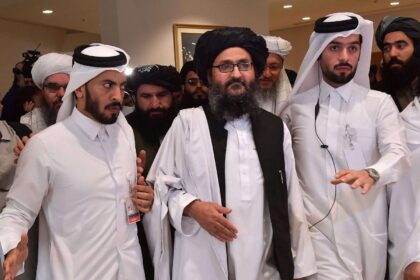RASC News Agency: In a move that has raised alarm across the international community, Russia’s Supreme Court officially removed the Taliban from its list of terrorist organizations on April 17, 2025 a designation that had stood since 2003. This decision, initiated by the Prosecutor General’s Office and endorsed by Russia’s security establishment, signals a perilous and deeply misguided shift in Moscow’s foreign policy one that could endanger not only Afghanistan’s fragile future but also the broader stability of Central and South Asia. The Taliban a group synonymous with violence, gender apartheid, ethnic persecution, and the systematic dismantling of civil society are now being afforded political legitimacy by a major global power. Moscow’s move is not merely a betrayal of the Afghanistani people’s suffering, but an affront to the sacrifices made by the international community in the decades-long struggle against terrorism and extremism.
According to analysts, the Kremlin’s decision is primarily motivated by its growing fears of the Islamic State Khorasan Province (IS-KP), particularly after the brutal terrorist attack in Moscow in March 2024. Russian officials appear to believe that by embracing the Taliban, they can create a buffer against IS-KP’s expansion. Yet this calculation is dangerously naive. The Taliban themselves are steeped in extremist ideologies and have consistently demonstrated, since retaking power in August 2021, that their primary focus is not combating terrorism, but rather entrenching an oppressive ethno-religious autocracy. Throughout their brutal rule, the Taliban have waged a relentless war on human dignity: banning women and girls from education and employment, criminalizing dissent, extinguishing free press, targeting ethnic minorities, and imposing a medieval interpretation of governance. Their regime is characterized not by stability, but by systematic human rights abuses and the institutionalization of violence. To view such a movement as a “partner” in counterterrorism efforts is to fundamentally misunderstand or willfully ignore the true nature of the Taliban’s agenda.
At the recent Moscow Format summit, Russian Foreign Minister Sergey Lavrov openly discussed strengthening political and economic ties with the Taliban, signaling an alarming normalization of relations. Meanwhile, on the ground in Afghanistan, the Taliban’s reign of terror continues unabated: arbitrary arrests, forced disappearances, extrajudicial killings, the persecution of Hazara, Tajik, Uzbek, and other non-Pashtun communities, and the complete erasure of women from public life. Russia’s overtures to the Taliban amount to a stark betrayal of the Afghanistani people and a blatant disregard for the basic principles of human rights and international law. Instead of standing with the victims of tyranny, Moscow has chosen to align itself with their oppressors extending a hand of legitimacy to a regime that thrives on fear, repression, and cruelty.
The decision has sparked outrage among Afghanistan resistance groups. The National Resistance Front (NRF) led by Ahmad Massoud condemned the move as “an act of legitimizing a bloodstained and regressive militia,” warning that any cooperation with the Taliban would only embolden extremism, destabilize the region, and imperil the security of neighboring states. In their statement, the NRF emphasized that the Taliban, far from being a counterterrorism partner, are themselves a primary source of radicalization and regional instability. The Taliban a group that closes schools, burns books, silences journalists, crushes ethnic and sectarian diversity, and drives an entire nation into despair cannot and must not be treated as a legitimate stakeholder in global affairs. They remain, and will remain, the architects of suffering, ignorance, and authoritarianism. By legitimizing them, Moscow has not only reopened the wounds of the Afghanistani people but has also jeopardized the global fight against terrorism a fight Russia itself once claimed to champion.
Russia’s removal of the Taliban from its terror blacklist represents a catastrophic strategic miscalculation. The consequences will not be limited to Afghanistan’s borders. The vacuum of lawlessness, radicalization, and violence that the Taliban foster could soon engulf Central Asia, the Middle East, and Europe if unchecked. History will judge harshly those who choose expediency over principle, and who, in the face of mounting atrocities, extend recognition instead of resistance. If the international community remains silent in response to this reckless decision, it risks allowing Afghanistan’s tragedy to become a prelude to a broader regional catastrophe.
The world must remember: the Taliban are not and will never be the legitimate representatives of Afghanistan. They are the enforcers of darkness, the enemies of liberty, and the destroyers of hope.






